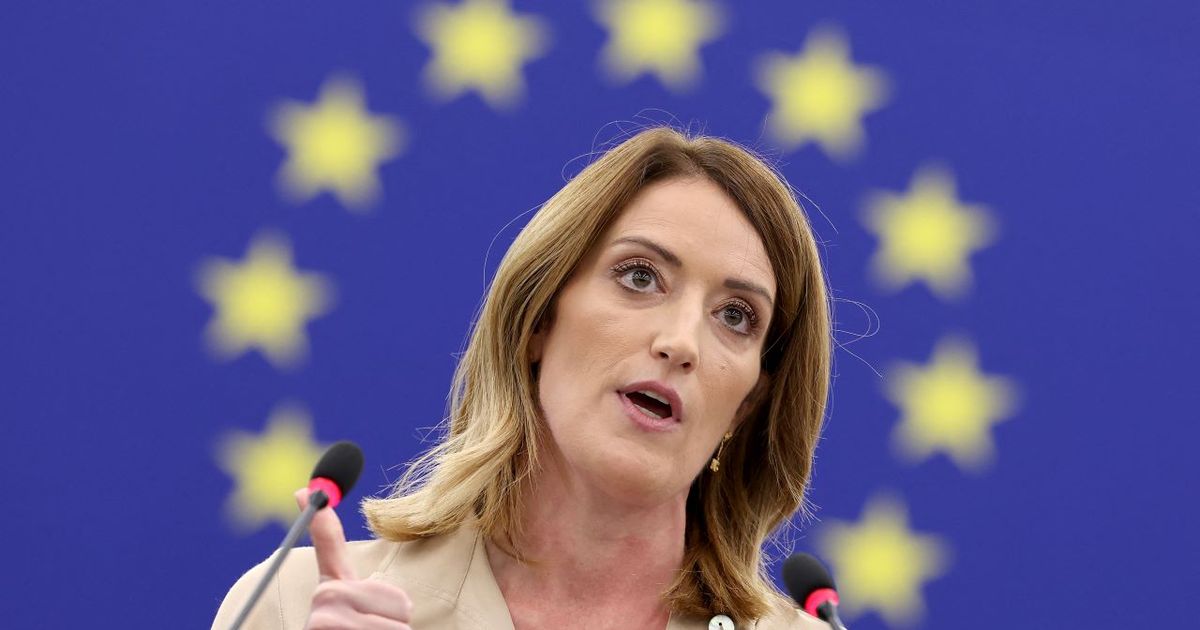STRASBOURG – The European Parliament, renewed after the European elections in June, began the new legislature on Tuesday with the re-election of the Maltese conservative Roberta Metsola as its Chairwoman.
Metsola received 562 votes and will lead the European legislature for the next two and a half years.
Metsola, a 45-year-old lawyer, has been President of the European Parliament since 2022, when she was First Vice-President and assumed the top post following the death of the then incumbent, Italian David Sassoli.
“We must not be afraid to confront autocrats. We must not be afraid to keep our promises, to stand up for Europe, and not be afraid to build a union that works for all of us,” Metsola said after her election.
Meanwhile, the Spanish candidate Irene Montero, representing the Left bloc, received 61 votes.
On Thursday, parliament will vote on whether to approve a second term for Ursula von der Leyen at the head of the European Commission.
Strengthening the right
Following the European elections in June, the European Parliament faces a difficult political situation, due to the strengthening of the right.
The European People’s Party (EPP, right) remains the largest bloc in the legislature, followed by the Socialists and Democrats (S&D, social democrats).
These two blocks, and the Renew group (liberals), formed the political trio on which the balance of the European Parliament rested in the legislature that is coming to an end.
However, in the June elections Renew fell to fifth place, being overtaken by two right-wing blocs: the Conservatives and Reformists (ECR) and the Patriots for Europe, led by Hungarian Prime Minister Viktor Orban.
Thus, the original trinomial (called ‘centrist’) still represents a general majority tendency, but the strengthening of the most conservative wing of the right modifies all political calculations.
Delicate balance
In the outgoing legislature, for example, the ECR had one vice-presidency of the European Parliament and now demands to have two, an idea rejected by the left-wing blocs.
Beyond the demands of ECR, the Patriots for Europe group (the third largest party) should be left with two vice-presidencies.
A spokesman for the Patriots for Europe group, Alonso de Mendoza, said that this was “an anti-democratic practice that deprives millions of citizens of representation.”
The ECR bloc, for its part, called for “not excluding those who do not please a certain majority.”
When launching her candidacy for a second term, Von der Leyen had admitted that she was willing to collaborate with certain sectors of the ECR, in an attempt to win votes in that bloc.
However, any eventual support from the ECR would close the door to votes from the Social Democrats and the Liberals.
In recent weeks, Von der Leyen has therefore focused on channels of dialogue with the Greens, who with their 53 votes can help make a difference.
In this case, any promises made by Von der Leyen to the Greens will help to wipe out important votes in the EPP, which question key aspects of the bloc’s environmental plans, the so-called Green Deal.
The ECR bloc is scheduled to meet with Von der Leyen on Tuesday, and the group’s spokesman, Michael Strauss, outlined the political family’s concerns.
“We will not be able to support her if she persists in her ideological approach” to the Green Deal, he said.
Source: With information from AFP

